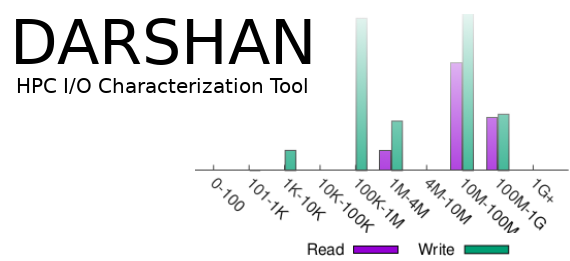Darshan 2.3.1-pre1 is now available for download, and the release changelog is listed below. Please let us know if you have any feedback or suggestions. We’ll be working to turn this into a stable release in the coming weeks.
darshan-2.3.1-pre1
- Add wrappers for mkstemp(), mkostemp(), mkstemps(), and mkostemps() (reported by Tom Peterka)
- Change OPEN_TIMESTAMP field to report timestamp right before open() is invoked rather than after timestamp after open is completed.
NOTE: updated log format version to 2.06 to reflect this change. - Change start_time and end_time fields in job record to use min and max (respectively) across all ranks
- Fix bug in write volume data reported in file system table in darshan-job-summary.pl (reported by Matthieu Dorier)
- Clean up autoconf test for zlib and make zlib mandatory (reported by Kalyana Chadalavada)
- add –start-group and –end-group notation to Darshan libraries for Cray PE 2.x environment to fix link-time corner cases (Yushu Yao)
- improve y axis labels on time interval graphs in darshan-job-summary.pl (reported by Tom Peterka)
- misc. improvements to darshan-parser –perf output (reported by Shane Snyder)
- indicate which rank was slowest in unique file results
- label I/O vs. meta time more clearly
- include unique file meta time in agg_perf_by_slowest calculation
